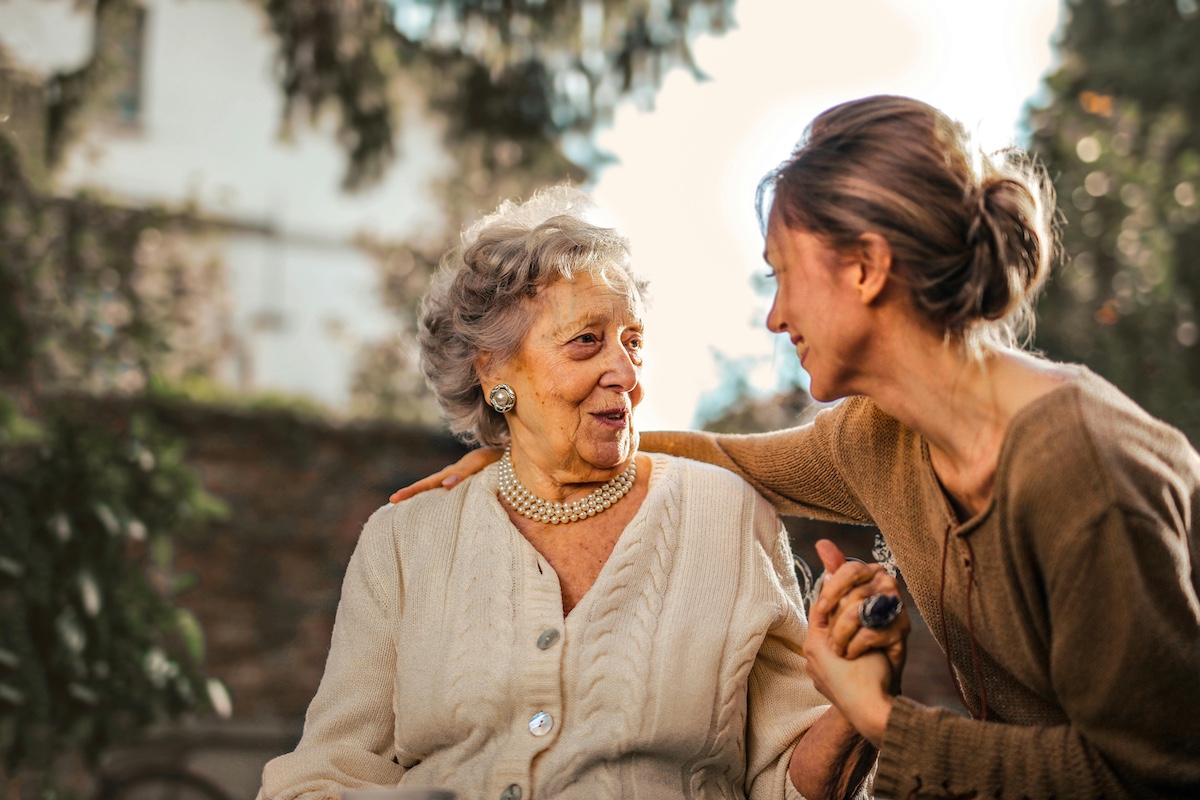As the seasons change and daylight hours stretch into the evening, many families begin to notice changes in the sleep habits of their elderly loved ones. While longer days and increased sunlight can boost mood and encourage outdoor activity, they can also disrupt sleep – especially in older adults.
If you’re caring for a senior who’s suddenly struggling to fall asleep, waking frequently at night, or feeling overly fatigued during the day, you’re not alone.
Sleep challenges are common in the elderly, and seasonal changes can exacerbate those issues. In this blog post, we’ll explore the reasons behind sleep disruptions in seniors during longer days, offer practical strategies for managing these challenges, and highlight when to seek additional help. Before we look at how summer daylight impacts sleep, it’s important to understand the underlying sleep changes that naturally occur with aging. These include:Why Sleep Changes as We Age
A shift in circadian rhythm: Older adults often become “early birds,” falling asleep and waking up earlier than they used to.
Lighter sleep: Seniors spend less time in deep sleep stages, making them more prone to waking during the night.
Frequent awakenings: Conditions like arthritis, sleep apnea, or the need to use the restroom can interrupt rest.
Daytime napping: Seniors may nap more often, reducing nighttime sleep pressure.
When you layer in seasonal factors, like extended daylight hours, increased heat, and a disrupted routine, these issues can worsen. Long summer days mean more hours of sunlight, which can throw off the body’s internal clock, also known as the circadian rhythm. This internal clock is highly sensitive to light exposure, helping the brain determine when it’s time to feel awake or sleepy.How Longer Days Affect Senior Sleep
For seniors, this can present a few challenges: Delayed melatonin production: Sunlight suppresses melatonin, the hormone that signals sleep. If the sun sets late, their body may not start producing melatonin until much later than needed.
Confusion about time: Dementia or cognitive impairment can make it hard to distinguish between day and night, especially if it stays bright outside well into the evening.
Overstimulation: More social events, evening noise, and light can make it harder to wind down for sleep.
Keep an eye out for these sleep-related changes during the longer daylight months: Increased restlessness at nightSigns Your Loved One May Be Struggling
Daytime fatigue or falling asleep in inappropriate situationsNight wandering or confusion (especially with dementia)
Mood changes like irritability or depression
Changes in appetite or concentration Even if your loved one doesn’t complain about their sleep, these behavioral cues could indicate poor rest or a disrupted sleep cycle. While every senior is unique, these strategies can help improve sleep quality and promote a healthier daily rhythm. Regularity is one of the most powerful tools in managing sleep. Aim to keep wake-up times, meals, and bedtimes consistent, even on weekends. Create a predictable bedtime routine (reading, soft music, warm bath).Tips for Managing Sleep Issues During Long Summer Days
1. Establish a Consistent Routine
Avoid stimulating activities or heavy meals too close to bedtime.
Schedule outdoor time for early in the day to avoid overstimulation in the evening.
Because light is a major driver of circadian rhythm, it’s crucial to reduce light exposure in the hours leading up to bedtime. Close blinds or curtains before sunset to “simulate” nightfall.2. Limit Exposure to Evening Light
Use lamps with warm-toned bulbs in the evening instead of overhead lighting.
Turn off screens (TV, phone, tablet) at least an hour before bed.
If your loved one is sensitive to light, consider blackout curtains or an eye mask to promote melatonin production. While evening light can delay sleep, morning light can help regulate the sleep-wake cycle. Aim for at least 30 minutes of natural light exposure each morning. Eat breakfast near a sunny window.3. Use Morning Sunlight to Your Advantage
Take a short walk outside in the morning.
Open blinds to let sunlight in first thing after waking.
Morning light cues the brain to start the day and can help your loved one feel more alert and balanced throughout the day. Summer heat can make it hard for anyone to sleep, but seniors, in particular, may have difficulty regulating body temperature. Set the bedroom thermostat between 65–70°F if possible.4. Create a Cool, Comfortable Sleep Environment
Use breathable sheets and lightweight blankets.
Place a fan in the room to circulate air.
Offer a cool shower or damp washcloth before bed if they feel overheated.
Napping can be beneficial in small doses but problematic when it interferes with nighttime sleep. Limit naps to 20–30 minutes, ideally before 3 p.m.5. Monitor Napping Habits
Avoid long naps that make it harder to fall asleep at night.
If daytime sleepiness persists, rule out underlying issues like sleep apnea or medication side effects.
Regular movement helps regulate the sleep-wake cycle and supports overall health. Even if mobility is limited, try incorporating some form of exercise each day: Chair stretches6. Encourage Gentle Physical Activity
Gentle walks
Light gardening in the morning
Water aerobics or physical therapy
Just be sure to avoid vigorous activity too close to bedtime, as it may be overly stimulating. Help create a peaceful nighttime environment: Dim the lights at least an hour before bed7. Reduce Stimuli at Night
Lower noise levels – turn off loud TVs or musicAvoid discussing stressful topics before bed
Use white noise or soft music if silence feels unsettling
Calming rituals like aromatherapy, light reading, or prayer can also signal to the brain that it’s time to rest. If you’ve tried these strategies and your loved one still struggles with persistent sleep issues, it may be time to consult a healthcare provider. Sleep disruptions can sometimes point to: Medication side effectsWhen to Talk to a Doctor
Depression or anxiety
Dementia-related sleep disorders
Restless leg syndrome or sleep apnea
A medical professional can help evaluate potential causes and recommend appropriate interventions or therapies. Sleep challenges are frustrating, especially when they impact the overall health and mood of someone you love. But you’re not helpless. With small, consistent changes and supportive care, you can help your elderly loved one feel more comfortable and rested, even during the long, bright days of summer.Final Thoughts: Gentle Support Goes a Long Way
Remember, their comfort matters – not just at night, but all day long. Keep communication open, watch for patterns, and celebrate the small wins: a good nap, a full night’s sleep, or a quiet morning together.
The path to better sleep isn’t always immediate, but with patience and understanding, it’s within reach.


